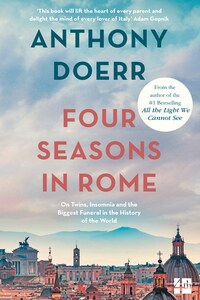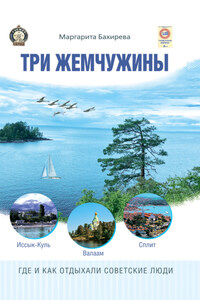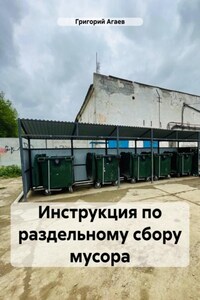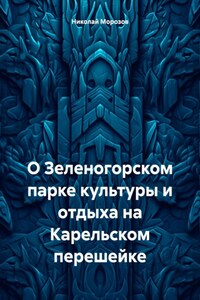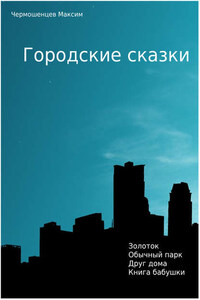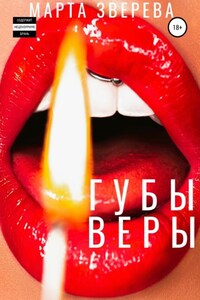4th Estate
An imprint of HarperCollinsPublishers
1 London Bridge Street
London SE1 9GF
www.4thEstate.co.uk
Originally published in the United States in 2007 by Scribner
First published in Great Britain by 4th Estate in 2008
This ebook edition published by 4th Estate in 2016
Copyright © Anthony Doerr 2007
Cover photograph © Shutterstock.com
The right of Anthony Doerr to be identified as the author of this work has been asserted by him in accordance with the Copyright, Designs and Patents Act 1988
A catalogue record for this book is available from the British Library
All rights reserved under International and Pan-American Copyright Conventions. By payment of the required fees, you have been granted the non-exclusive, non-transferable right to access and read the text of this e-book on screen. No part of this text may be reproduced, transmitted, downloaded, decompiled, reverse engineered, or stored in or introduced into any information storage and retrieval system, in any form or by any means, whether electronic or mechanical, now known or hereinafter invented, without the express written permission of HarperCollins e-books.
Ebook Edition © June 2010 ISBN: 9780007390533
Version: 2016-12-01
Rain falls, clouds rise, rivers dry up, hailstorms sweep down; rays scorch, and impinging from every side on the earth in the middle of the world, then are broken and recoil and carry with them the moisture they have drunk up. Steam falls from on high and again returns on high. Empty winds sweep down, and then go back again with their plunder. So many living creatures draw their breath from the upper air; but the air strives in the opposite direction, and the earth pours back breath to the sky as if to a vacuum. Thus as nature swings to and fro like a kind of sling, discord is kindled by the velocity of the world’s motion.
PLINY THE ELDER, FROM THE
Natural History, AD 77>1
ITALY LOOMS. WE MAKE CHECKLISTS—DIAPERS, CRIB bedding, a book light. Baby formula. Two dozen Nutri-Grain bars. We have never eaten Nutri-Grain bars in our lives, but now, suddenly, it seems important to have some.
I stare at our new Italian-to-English pocket dictionary and worry. Is “Here is my passport” in there? Is “Where for God’s sake can I buy some baby wipes?”
We pretend to be calm. Neither of us is willing to consider that tomorrow we’ll pile onto an Airbus with six-month-old twins and climb to thirty-seven thousand feet and stay there for fourteen hours. Instead we zip and unzip our duffels, take the wheels off the stroller, and study small, grainy photos of St. Peter’s on ricksteves.com.
Rain in Boise; wind in Denver. The airplane hurtles through the troposphere at six hundred miles per hour. Owen sleeps in a mound of blankets between our feet. Henry sleeps in my arms. All the way across the Atlantic, there is turbulence; bulkheads shake, glasses tinkle, galley latches open and close.
We are moving from Boise, Idaho, to Rome, Italy, a place I’ve never been. When I think of Italy, I imagine decadence, dark brown oil paintings, emperors in sandals. I see a cross-section of a school-project Colosseum, fashioned from glue and sugar cubes; I see a navy-blue-and-white soap dish, bought in Florence, chipped on one corner, that my mother kept beside her bathroom sink for thirty years.
More clearly than anything else, I see a coloring book I once got for Christmas entitled Ancient Rome. Two babies slurped milk from the udders of a wolf. A Caesar grinned in his leafy crown. A slinky, big-pupiled maiden posed with a jug beside a fountain. Whatever Rome was to me then—seven years old, Christmas night, snowflakes dashing against the windows, a lighted spruce blinking on and off downstairs, crayons strewn across the carpet—it’s hardly clearer now: outlines of elephants and gladiators, cartoonish palaces in the backgrounds, a sense that I had chosen all the wrong colors, aquamarine for chariots, goldenrod for skies.
On the television screen planted in the seat-back in front of me, our little airplane icon streaks past Marseilles, Nice. A bottle of baby formula, lying sideways in the seat pocket, soaks through the fabric and drips onto my carry-on, but I don’t reach down to straighten it for fear I will wake Henry. We have crossed from North America to Europe in the time it takes to show a Lindsay Lohan movie and two episodes of Everybody Loves Raymond. The outside temperature is minus sixty degrees Fahrenheit.
A taxi drops us in front of a palace: stucco and travertine, a five-bay façade, a staircase framed by topiaries. The gatekeeper stubs his cigarette on a shoe sole and says, in English, “You’re the ones with the twins?” He shakes our hands, gives us a set of keys.
Our apartment is in a building next to the palace. The front gate is nine feet tall and iron and scratched in a thousand places; it looks as if wild dogs have been trying to break into the courtyard. A key unlocks it; we find the entrance around the side. The boys stare up from their car seats with huge eyes. We load them into a cage elevator with wooden doors that swing inward. Two floors rattle past. I hear finches, truck brakes. Neighbors clomp through the stairwell; a door slams. There are the voices of children. The gate, three stories down, clangs hugely.
